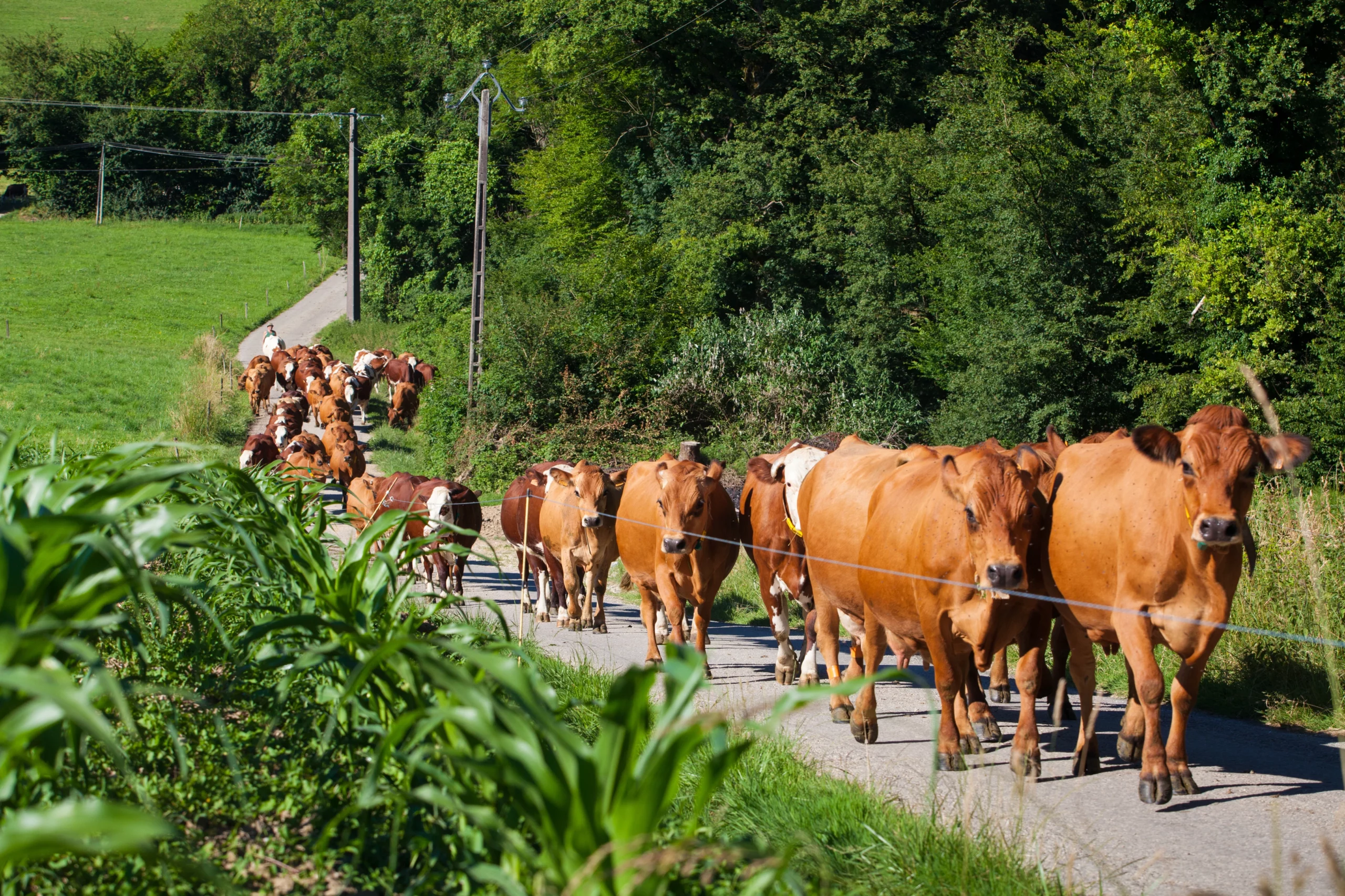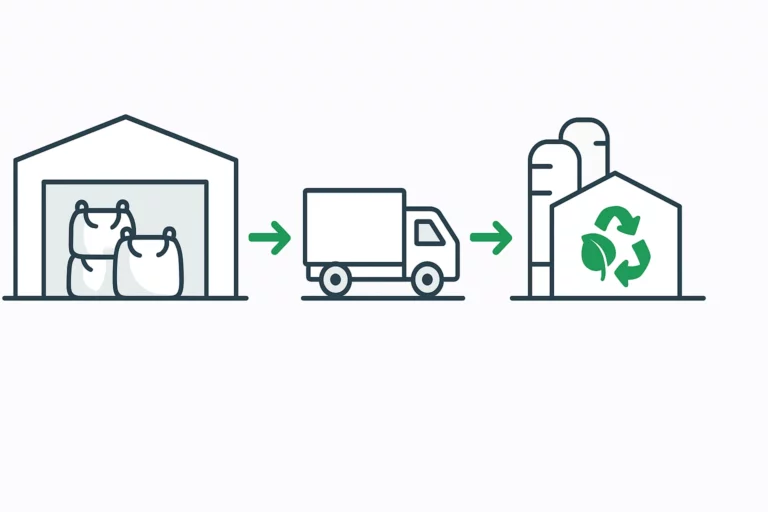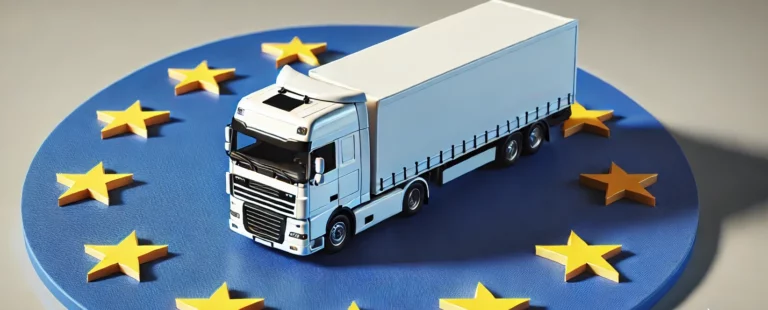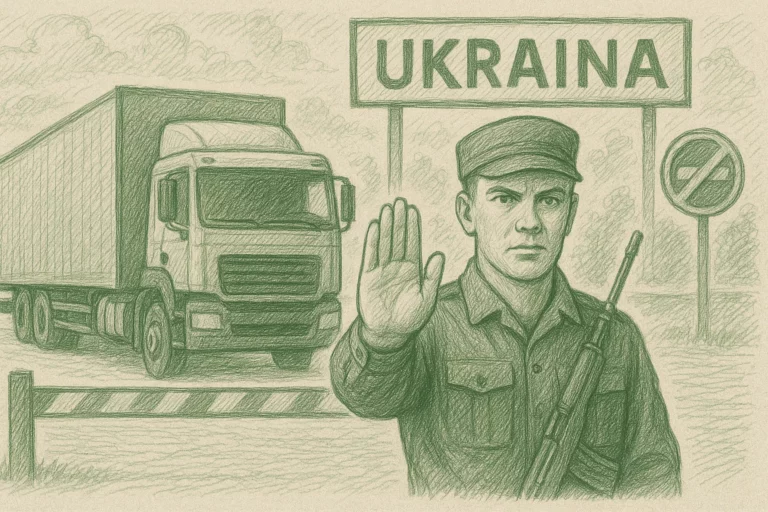The role of TRACES in the transport of UPPZ materials

The transport of animal by-products (ABPs) is an important part of the European Union economy. The movement of these products requires special precautions and compliance with strict sanitary and veterinary rules. Established in 2004, the TRACES (Trade Control and Expert System) plays a key role in monitoring and facilitating this type of transport. Not only within the European Union, but also in trade with third countries.
What are UPPZ products? What do we include in them?
Animal by-products are materials derived from animals that are not intended for human consumption. These products are subject to strictly regulated due to potential risks to human, animal and environmental health. They can be divided into three categories:
- Category 1: Products with the highest risk, e.g. animals contaminated with infectious diseases.
- Category 2: Medium-risk materials, such as waste from meat production or organic fertilisers.
- Category 3: Products with the lowest risk, such as bones, hides or dairy products that can be used for feed.
UPPZ transport - challenges
Transporting UPPZs poses many logistical and legal challenges. Transporting these products requires appropriate certification, compliance with international regulations and close monitoringwhich aims to protect public health and the environment. UPPZs often require specialised vehicles to ensure appropriate transport conditions, as well as adherence to strict sanitary standards.
UPPZ transport - the role of TRACES
TRACES (Trade Control and Expert System) was established on the basis of the European Commission Regulation No 882/2004 of 29 April 2004.
It was established in response to the need for better monitoring and tracking of the movement of animals, animal products, plants and food within the European Union and from third countries. It was a step aimed at improving health controls and the safety of trade in animal and animal products following the outbreaks of animal diseases such as BSE and foot and mouth disease that affected Europe in the late 1990s and early 2000s.
TRACES has replaced previous paper-based transport tracking systems. It has created a more efficient, centralised and digital platform that enables regulators to better control food safety and public and animal health.
Advantages of the TRACES system:
- Monitoring the movement of UPPZ within the EU and on export and import routes.
- Enables rapid response to sanitary hazards through easy access to origin and transport route data.
- Supports cooperation between national control bodies, speeding up border procedures and internal sanitary controls.
TRACES - the most common errors
Despite the facilitation offered by TRACES, companies still often make mistakes that can lead to delays or sanctions. The most common problems are:
- Incomplete or erroneous documentation. Errors in the certificates can lead to the suspension of transport or rejection of the application by the health services. In Germany, such an error can cost a company up to €50,000. (i.e. more than PLN 200 thousand). In Poland, a company's wallet can be depleted by more than PLN 10 thousand for such an offence.
- Lack of knowledge of regulations in the destination country. Differences in sanitary requirements between EU and non-EU countries can cause problems at borders.
- Outdated data in the system. Failure to keep transport information up to date can result in non-compliance with current legislation, which often results in penalties. For example, in Poland, a company can be fined up to PLN 10,000 for failing to keep TRACES data up to date, but in Germany this sum can reach up to €30,000, or more than PLN 120,000.
Are you looking for loads that include UPPZ materials?
Have you obtained a permit to transport UPPZ materials but don't know where to look for them? Get in touch with our logistics department:
dispo@innovationtrading.eu , +48 519 516 869
Why be in TRACES?
Using TRACES brings many benefits to companies, such as:
- Process automation. With TRACES, companies can quickly and easily generate the necessary certificates and documents, significantly reducing the time needed for paperwork.
- Reducing the risk of errors. The electronic system minimises the risk of errors in documentation, which can lead to transport being held up.
- Improving logistical efficiency. With TRACES, companies can better manage the logistics of their shipments with a complete overview of the entire supply chain and the status of their transports.
Transport UPPZ and sanctions - why it is not worth taking shortcuts
We have already mentioned something about financial penalties. However, it is worth looking at other consequences in the case of inadequate transport of UPPZs and insufficient knowledge of how to use TRACES:
Stopping transport at the border:
- Border control. Customs and veterinary authorities may stop a shipment at the border if they find discrepancies in TRACES or accompanying documents (e.g. no veterinary certificate, outdated licences).
- Delivery delays. Transport stoppages can lead to significant delays. This can have a negative impact on the company, especially if the products being transported are time-sensitive (e.g. perishable products).
- Additional costs. Storing goods in warehouses at the border or returning transport to the country of origin can generate additional costs for the carrier.
Transport of UPPZ back to the manufacturer:
- Return of goods order. This is one of the harshest sanctions, as it involves additional logistical costs, delays and often damage to products (in the case of products requiring appropriate transport conditions).
- Prohibition of onward transportation. The veterinary authorities may impose a ban on further transport of the goods, which may prevent the order from being fulfilled.
Quarantine or disposal of goods:
- Quarantine. In some cases, the goods will be placed in quarantine. This means that it will be detained for a certain period of time in a place designated for inspection. This may be necessary if there is a suspected risk to public health or the environment.
- Disposal. If the transported PCAs do not meet veterinary requirements or pose a risk, they may be ordered to be disposed of in accordance with environmental regulations. Disposal at the company's expense is one of the most severe sanctions, especially when large transports are involved.
Temporary or permanent withdrawal of a transport permit UPPZ:
- In the event of repeated infringements company may lose UPPZ transport permits on a national or cross-border basis. Withdrawal of the permit entails the inability to continue to operate in this area.
- Withdrawal of registration in TRACES. The company may be removed from the TRACES register, preventing it from legally transporting products within the EU.
Civil liability:
- In the event that irregularities in TRACES documentation or UPPZ transport lead to harm, e.g. infection of other animals with a disease, contamination of the environment or risk to public health, the company may be held civilly liable.
- Victims (e.g. recipients of goods or other transport companies) may claim compensation for the financial losses they suffered due to incorrect transport.
Follow-up checks and more frequent inspections:
- If irregularities are detected the company may be subject to additional inspections veterinary or sanitary. More frequent inspections undoubtedly generate additional costs and may lead to the suspension of transports until full compliance is achieved.
- More frequent border controls. Carriers with a history of irregularities may be subject to more stringent checks on subsequent transports. This increases the risk of delays and additional charges.
Loss of reputation and trust of contractors:
- In case of non-compliance with regulations related to the transport of UPPZ, the company may lose its reputation on the international market. Cooperating companies and contractors may avoid working with a carrier that does not care about compliance.
- Blacklist. In some cases, control authorities may inform other companies and institutions of problems with a particular company, which may lead to difficulties in establishing new business relationships.
Why should you outsource your TRACES registration to a professional?
TRACES registration can be complex and time-consuming. Especially in the context of dynamically changing regulations. Outsourcing this task to a professional company that specialises in logistics management and regulatory compliance avoids mistakes. An external service is a guarantee that all procedures will be carried out quickly, efficiently and in compliance with regulations. Contact us, we will take care of everything comprehensively.






